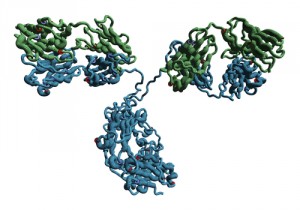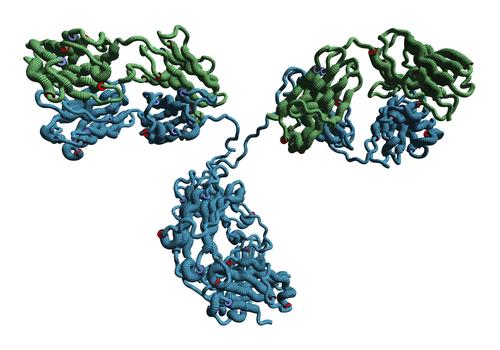 Three clinical trials — one an open-label extension study, evaluating adalimumab (Humira) in patients with moderately to severely active ulcerative colitis — were recently reviewed in an article from collaborators at Icahn School of Medicine at Mt Sinai, AbbVie, and other gastroenterology-focused institutions. Ulcerative Colitis Long-Term Remission and Maintenance with Adalimumab (ULTRA) 1, 2, and open-extension 3 bolstered evidence that adalimumab is beneficial in patients affected with ulcerative colitis, as described by “Four-Year Maintenance Treatment with Adalimumab in Patients with Moderately to Severely Active Ulcerative Colitis: Data from ULTRA 1, 2, and 3,” published in The American Journal of Gastroenterology.
Three clinical trials — one an open-label extension study, evaluating adalimumab (Humira) in patients with moderately to severely active ulcerative colitis — were recently reviewed in an article from collaborators at Icahn School of Medicine at Mt Sinai, AbbVie, and other gastroenterology-focused institutions. Ulcerative Colitis Long-Term Remission and Maintenance with Adalimumab (ULTRA) 1, 2, and open-extension 3 bolstered evidence that adalimumab is beneficial in patients affected with ulcerative colitis, as described by “Four-Year Maintenance Treatment with Adalimumab in Patients with Moderately to Severely Active Ulcerative Colitis: Data from ULTRA 1, 2, and 3,” published in The American Journal of Gastroenterology.
More than 1,000 individuals with moderately to severely active ulcerative colitis were enrolled in ULTRA 1 or 2, and 600 patients were randomized to receive adalimumab in varying doses across a set of treatment groups. Double-blind treatment was sustained for eight or twelve weeks, after which time patients were given the option of receiving adalimumab at a dose of 40 milligrams every other week in ULTRA 3. Approximately one-third (199) of patients continued with adalimumab for four years with follow-ups.
Rates of remission as defined by partial Mayo score or Inflammatory Bowel Disease Questionnaire (IBDQ) score, mucosal healing, and corticosteroid discontinuation were the data used to determine the success of treatment. After the four years of treatment (at week 208), remission rate as per partial Mayo score was 24.7% and remission rate as per IBDQ score was 26.3%. Mucosal healing was experienced by 27.7% of patients, and corticosteroids were discontinued by 59.2%.
During the study, adverse event rates were stable. The results of ULTRA further demonstrate the safety and efficacy of adalimumab for treating moderately to severely active ulcerative colitis. Humira, produced by AbbVie, is a treatment approved for a number of inflammatory conditions including Crohn’s disease and ulcerative colitis.

